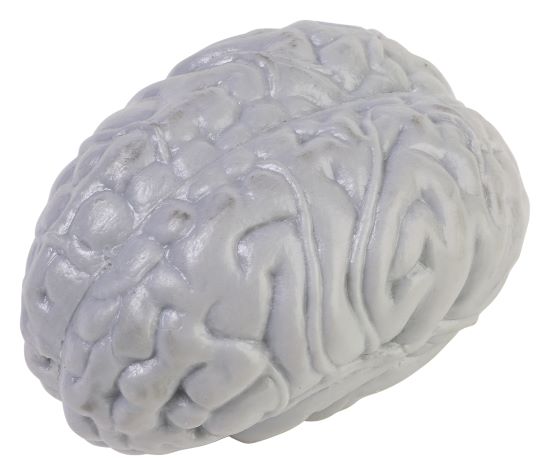Research findings are further evidence of the failure in understanding, validity and treatment that one researcher calls “a triple crisis in psychiatry.”
A new study found that psychiatrists performed significantly worse than other physicians, according to an analysis of performance scores that are heavily weighted for quality measures in Medicare’s new merit-based payment system.
The study of U.S. outpatient physicians who participated in 2020 in the Centers for Medicare and Medicaid Services (CMS) Merit-Based Incentive Payment System, which ties reimbursement to performance on cost and quality measures, found that psychiatrists lagged in performance and incurred more financial penalties for their poor performance when compared to other physicians.
“Psychiatrists had significantly lower performance scores, were significantly more likely to be assessed a performance penalty, and were less likely to be assessed a bonus than other physicians,” according to the study’s lead author, Andrew Qi, M.D., of Washington University School of Medicine, writing in JAMA Health Forum.

The performance scores were weighted 50% for quality, 10% for cost of care per patient, 25% for promoting interoperability (such as using certified electronic medical records), and 15% for practice improvement activities. The quality metrics include measures of treatment outcomes and patient experiences of their care.
The researchers question whether the performance measures should be changed to improve psychiatrists’ scores, suggesting that psychiatrists receiving fewer bonuses and incurring more penalties under the current metrics might opt out of Medicare. Already, psychiatrists are less likely to accept Medicare insurance than other physicians, the researchers say.
“Psychiatrists had significantly lower performance scores, were significantly more likely to be assessed a performance penalty, and were less likely to be assessed a bonus than other physicians.”
– Researcher Andrew Qi, M.D., Washington University School of Medicine
A better explanation for psychiatrists’ poor performance may lie in what one researcher called the current “triple crisis in psychiatry”: no validity to psychiatric “diagnoses,” no understanding of the cause or development of mental disorders, and a slowing in the research and development of new psychiatric drugs – replacements for existing drugs that research is concluding are both largely ineffective and carry substantial risks of serious, even life-threatening side effects when taking or discontinuing the drugs.
Psychiatrist Thomas Insel, M.D., director of the National Institute of Mental Health (NIMH) from 2002 to 2015, admitted in his blog on the NIMH website in 2013 that there is no objective, scientific validity for psychiatry’s “diagnoses” of mental disorders. This means there is no science behind, and no quality control possible for, the subjective psychiatric assessments that result in mental health practitioners labeling patients with mental disorders.
In his recently published book, Healing, Dr. Insel further admits that the $20 billion he directed to brain research during his tenure at NIMH failed to find any biological or brain causes of mental disorders and failed to improve the overall mental health of Americans. He notes that during his time as director, mental health outcomes actually worsened by many measures, including suicides, overdoses and the rates of homelessness and incarceration of those diagnosed with mental disorders, all of which increased.

This failure undermines the biomedical model on which present-day psychiatry operates, a model which is based on the still-unproven theory that biological abnormalities – primarily brain disorders – cause mental disorders and can be corrected with pharmaceutical drugs. Without proof of chemical imbalances of the brain or other biological abnormalities, there are no known defects for the prescribing of drugs to fix.
Some 77 million Americans are currently prescribed one or more psychiatric drugs, including 6.2 million children under the age of 18. About 439,000 are children from infancy to age 5. The drugs have known adverse effects, such as mood swings, diabetes, heart problems, aggression, psychosis, hallucinations, impulsivity, violence, and suicidal thoughts and actions – an integral part of the worsening outcomes from mental health treatment that Dr. Insel cites.
The Citizens Commission on Human Rights (CCHR) has compiled and publicized research studies and drug regulatory agency warnings about the harms of psychiatric drugs. Many of these studies and warnings can be found on CCHR’s database of psychiatric drugs side effects.
Psychiatry’s biomedical model also takes a psychological toll on the individual. Researchers John Read, a professor of psychology at the University of East London, and Joanna Moncrieff, a professor of psychiatry and researcher at University College London, writing recently in Psychological Medicine, found that the unproven premise of a chemical imbalance or disorder of the brain can be “profoundly disempowering” to the individual, focusing their attention on taking drugs instead of addressing the underlying causes of their mental distress.
“It encourages people to view themselves as the victims of their biology, to adopt pessimistic views about recovery, increases self-stigma and discourages people from taking active steps to improve their situation,” they wrote.
CCHR continues to make the unscientific nature of psychiatric “diagnoses” and the dangers of psychiatric drugs and practices known so that people can make fully informed decisions about mental health treatment.
WARNING: Anyone wishing to discontinue or change the dose of any psychiatric drug is cautioned to do so only under the supervision of a physician because of potentially dangerous withdrawal symptoms.
